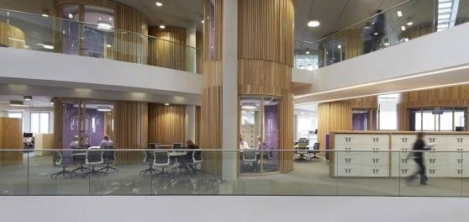February 6, 2015
Over a third of Scottish businesses are based at home (and a fifth started there)
 Over half of businesses in Scotland started in somebody’s home and over a third are still based there, according to a new report from the Federation of Small Businesses (FSB) and researchers from the University of Glasgow. The study of 1,000 Scottish businesses found that 39 percent are based from home and a further 19 percent began life there. The FSB claims that Scottish home based firms turn over around £20 billion a year with three quarters of them with a turnover of less than £100,000 and – perhaps unsurprisingly – only 3 percent with a turnover greater than £500,000. Two thirds also employ at least one additional member of staff. The report’s authors are now calling on Government to acknowledge the significance of these firms and develop policies to help them thrive.
Over half of businesses in Scotland started in somebody’s home and over a third are still based there, according to a new report from the Federation of Small Businesses (FSB) and researchers from the University of Glasgow. The study of 1,000 Scottish businesses found that 39 percent are based from home and a further 19 percent began life there. The FSB claims that Scottish home based firms turn over around £20 billion a year with three quarters of them with a turnover of less than £100,000 and – perhaps unsurprisingly – only 3 percent with a turnover greater than £500,000. Two thirds also employ at least one additional member of staff. The report’s authors are now calling on Government to acknowledge the significance of these firms and develop policies to help them thrive.
























October 17, 2014
The solution to complex issues like green building is to become more sophisticated
by Paul Goodchild • Comment, Environment, Facilities management, Workplace design
(more…)